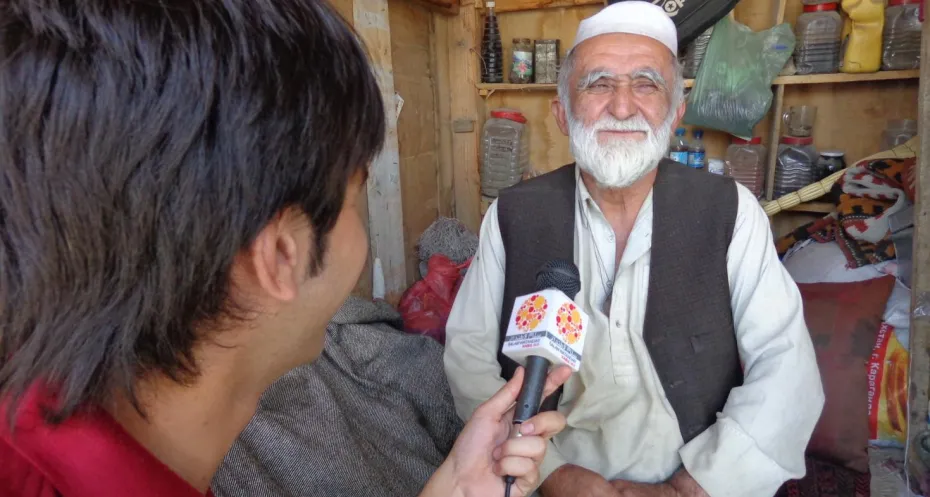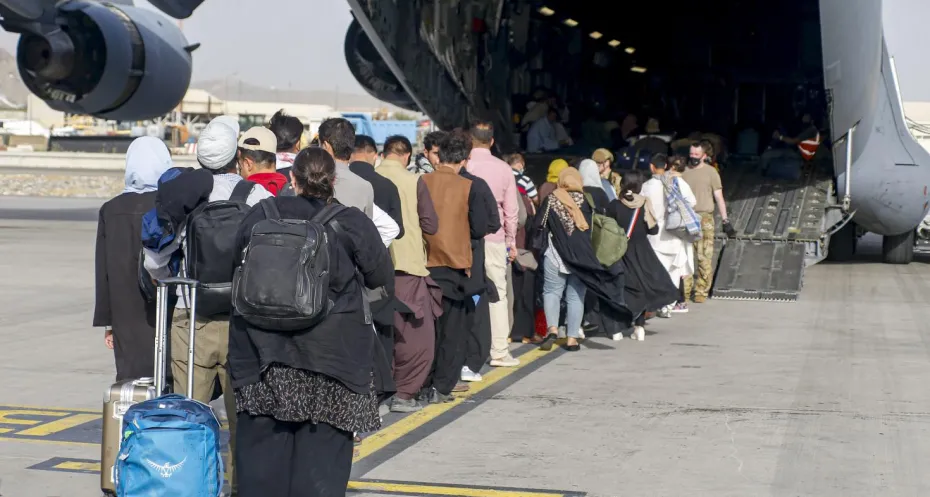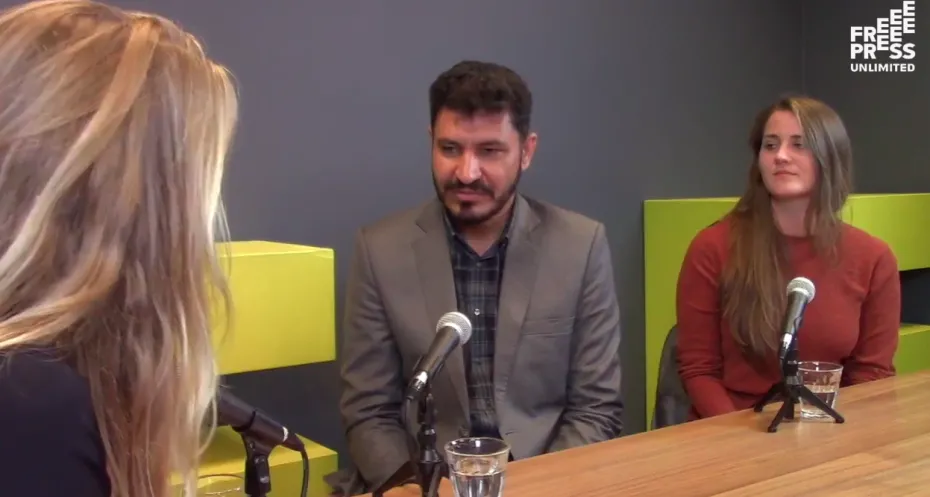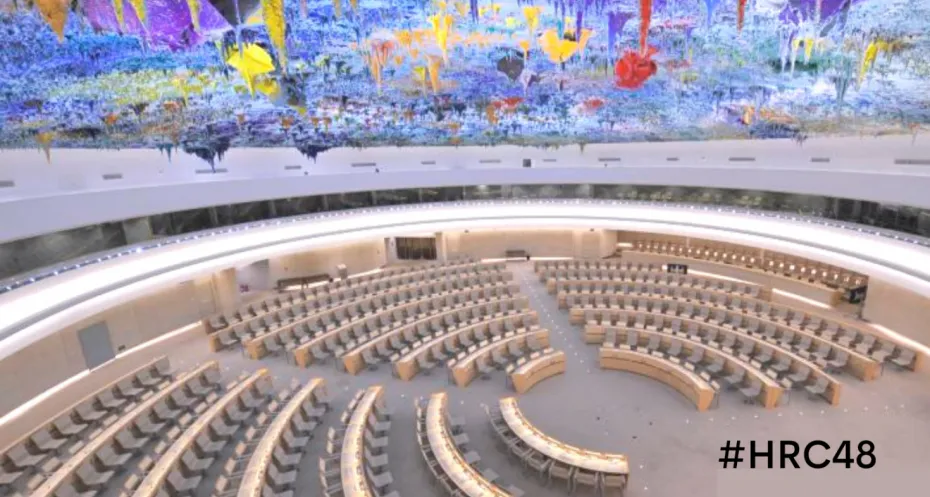Censorship of media in Afghanistan

Almost two months after the fall of Kabul on August 15th, it remains hard to paint an accurate picture of the current situation in Afghanistan. The number of Afghan independent journalists still writing about what is happening in their country is unfortunately limited. Free Press Unlimited is still working hard to ensure the safety of journalists remaining in Afghanistan.
Little pieces of information are reaching us through international news media, our regional partners, and in the form of a continuous flow of emergency help requests we receive from media workers. What we hear indicates that censorship, oppression and fear still dominate the media landscape in Afghanistan.
Threats to journalists and support to those in immediate danger
It has become increasingly clear that many of the journalists, fixers and other media-personnel that have remained in Afghanistan are finding themselves in life-threatening situations. In the past month, we have received more than 600 requests from Afghan media workers requesting emergency assistance, in most cases in the form of evacuation. Despite the challenges, great efforts have been made to support those in most immediate danger. In the past month we have continuously supported Afghan journalists, providing safe houses and supporting those who have managed to flee to Islamabad.
In the requests for help that we receive, Afghan media workers describe the challenges and threats that they face under the new Taliban regime. Especially women journalists, prominent journalists that have spoken out against the Taliban or in favour of women’s rights, and journalists from minority groups (such as the Shia Hazara minority) describe that they find themselves in life-threatening situations. From them we receive reports of targeted pursuits and threats. Often their family members have also become targets of threats and assaults.
Lack of income
In addition to the many reports that we received of (death) threats, many of the targeted journalists say that their houses are being searched by the Taliban. In response, they are moving around from place to place in order to stay safe. We are observing a new worrying trend of media-workers losing their income as a result of them no longer being able to (safely) do their jobs. For example because they have (forcibly) had to put down their work or go into hiding. Without an income, many are currently experiencing economic hardship. Not only can they no longer pay the rent, but also primary needs such as water and food are increasingly harder to afford. In many cases, family members can also not go out because of the fear that they will be followed by the Taliban, and because there is very little food available as is.
Physical violence
Some journalists did not manage to escape and were taken away and interrogated - and sometimes even tortured - by the Taliban. Others have been attacked. Among the media that are still active, uncertainty prevails about the Taliban’s handling of the media. We hear from journalists that they are afraid of being stopped and investigated at one of the many checkpoints in the capital, and that several have already been mistreated on the streets. Media-workers who wanted to report on the women’s protests in Kabul were harshly blocked and many had their camera equipment confiscated. For example, Taqi Daryabi and Nematullah Naqdi of Etilaatroz Daily were detained and tortured after attempting to capture the protests. Naqdi said he was kicked in the head and told he was lucky not to have been beheaded.
Censorship and insecurity
An estimated 153 (local) media companies and radio stations in 20 of Afghanistan’s provinces have ceased operations since the Taliban-takeover. However, it appears that some of the media are still operational, but they seem to (have to) comply with Taliban orders to be able to do so. We are told the Taliban has teams who monitor the run-downs of the radio stations and TV channels. The directives for the media that have been published by the new regime give little hope for improvements. They contain vague language that leaves a lot of room for control over the work of the media. Publishing on topics that “conflict with Islam” is not allowed, nor is insulting “national figures”.
The media should seek balance in its publications and not publish on matters not authorised by those in charge. Also, the media should be careful in publishing things that may have a negative impact on public opinion or morale. It appears that the Taliban are trying to maintain considerable room to decide on what is being published or not. Questions about the restrictions that journalists send to officials remain unanswered most of the time. Stories are also circulating about plans to introduce new rules on digital communication and stricter control on social media chats and apps such as Whatsapp.
Call for urgent support
As a member of the Global Forum for Media Development, we are calling for the international community to take urgent steps to support journalism in Afghanistan. In a statement we give recommendations. Read the full statement here:
Director of Free Press Unlimited, Leon Willems, spoke in an item by the Dutch RTL Nieuws about the urgency to rescue Afghans who have worked for Dutch organizations, including journalists. Check out the item below. (English closed captions available).



